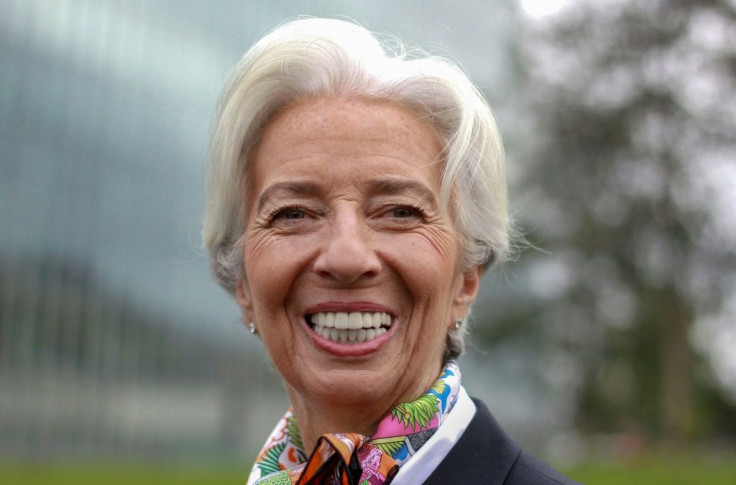Lagarde Stays Tight-lipped In First ECB Speech

Christine Lagarde kept her cards close to her chest as she delivered her first speech as European Central Bank chief in Berlin on Monday, disappointing markets hoping for hints of her monetary policy vision.
Faced with a German audience that has long been sceptical of the ECB's easy-money policies, Lagarde was quick to dash hopes for any fireworks on her first full day in the job.
The evening ceremony in honour of German parliamentary speaker and veteran ex-finance minister Wolfgang Schaeuble was not the right time to "talk about monetary policy or anything related to it," she said.
"First disappointment for markets by Lagarde," tweeted ING Diba bank analyst Carsten Brzeski.
Lagarde's closely-watched debut speech was only the laudatory address it was meant to be, he said, "and not a roadmap for the ECB's monetary policy in the coming weeks."
Schaeuble, a conservative champion of austerity, is the architect of Germany's strict "black zero" budget policy of not racking up new debts -- despite pleas from other EU capitals to increase public spending.
Germany is also the country that has been among the loudest opponents of the ECB's unprecedented stimulus measures in recent years, arguing that its record-low interest rates and cheap credit were hurting German savers.
Former French finance minister Lagarde, 63, praised Schaeuble for helping to steer the eurozone out of the sovereign debt crisis.
She said he had understood that "a monetary union comprising different sovereign states can only be sustainable if there is mutual trust".
Calling for closer integration of the 19-nation eurozone, Lagarde quoted Schaeuble's own words that "sticking to rules... does not mean a lack of creativity or originality."
"It is this spirit that we will need to channel in our efforts to deepen our economic and monetary union," she said.
In her previous role as head of the International Monetary Fund, Lagarde regularly added her voice to calls for Germany to spend and invest more, and in doing so help bolster eurozone growth.
Her ECB predecessor Mario Draghi also routinely urged euro area countries flush with cash to support the bank's ultra-loose monetary policies with fiscal stimulus.
In a sign that she may take a more assertive approach as the eurozone outlook darkens, Lagarde last week singled out Germany and the Netherlands as "countries with chronic budget surpluses" that should loosen their purse strings to redress "imbalances" in the bloc.
© Copyright AFP {{Year}}. All rights reserved.





















